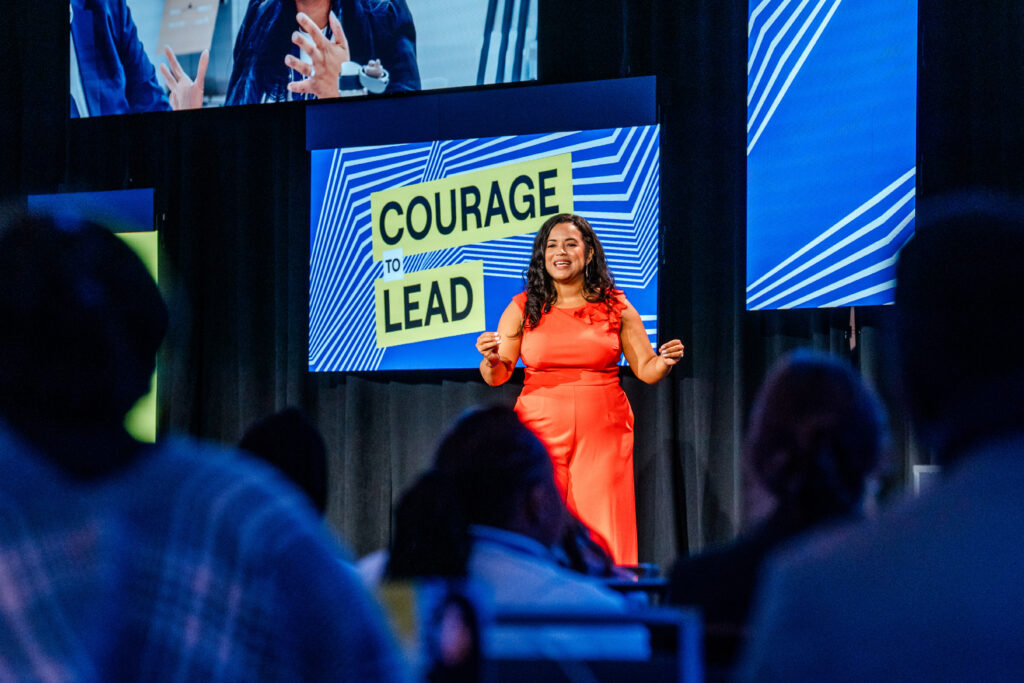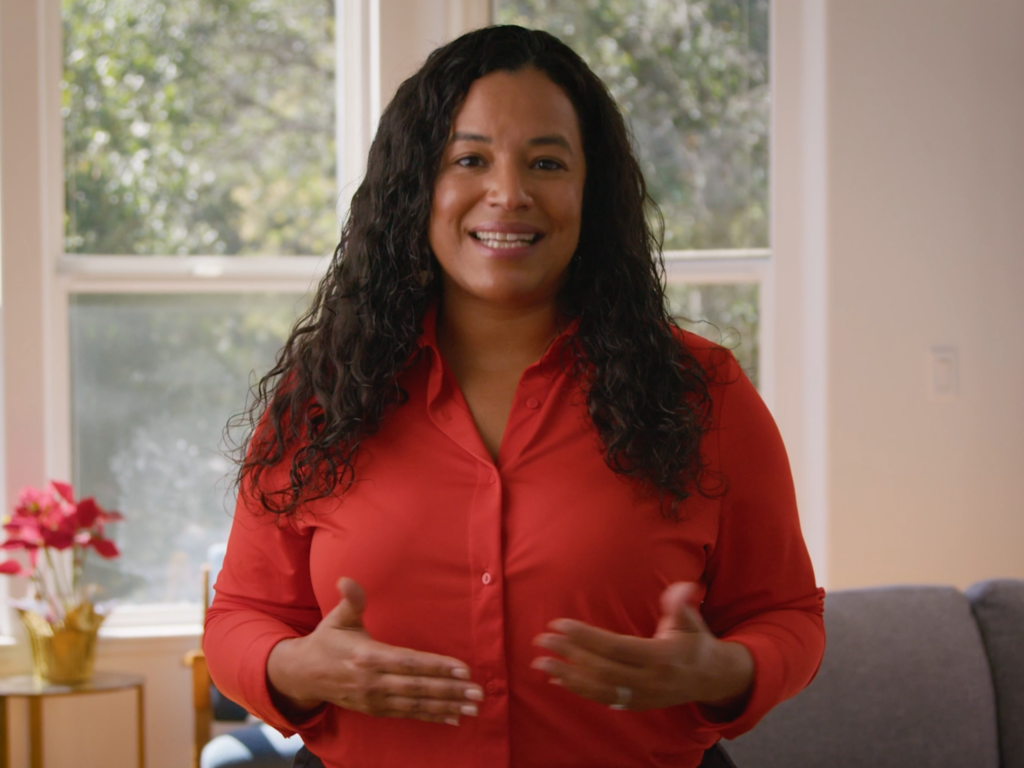Bethany Gross, a senior research analyst and research director at the Center on Reinventing Public Education (CRPE) moderated this thought-provoking session. Joining her as panelists were charter school founders Erin Mote of Brooklyn Lab Charter School, Oliver Sicat of Ednovate and Kyle Smitley of Detroit Achievement Academy, and Assistant Superintendent, April Madden of Henry County Schools. The session explored how the four education leaders are implementing personalized learning programs in their schools and how rigor and high expectations are the cornerstones of their programs.
For Erin Mote, rigor and high expectations are critical to achieving educational equity. Her school model infuses high expectations throughout its innovative, competency-based, Common Core State Standards-aligned next generation learning curriculum. Her message, “Personalized learning and rigor are not mutually exclusive. They can [and should] be done at the same time.” Mote and her husband Eric intentionally designed the school to drastically improve the academic success of students, many of whom come from underserved communities.
Both Oliver Sicat and April Madden are leveraging human capital practices to ensure high expectations and rigor are upheld in their personalized learning environments. Sicat has designed his school calendar to give teachers dedicated time to assess student progress and develop individualized learning plans. “To think about every individual student and understand what they need takes time. Every ten weeks we give our teachers two weeks off to do this work.” April Madden includes her leadership team and teaching staff on quality walkthroughs on a daily basis with an eye towards upholding rigor and ensuring students are being met at their individual needs. This development provides an opportunity to give and receive feedback and share best practices throughout her district.
Kyle Smitley shared that standards mastery can be rigorous when more is required of students, giving them ownership of their learning. Her expectation for her students: they (1) have a thorough understanding of each standard, (2) can show competency in varied ways, and (3) understand what it took for them to master the standard – and how their path to mastery is different from their classmates.
The panel ended with two calls-to-action when implementing personalized learning models. The first pressed for intentionality, including preparing teachers and students for implementation and providing the core tools needed: curriculum, technology, and learner profiles. The second call-to-action, vigilance, highlighted the importance of constant checks and reflections on progress.


